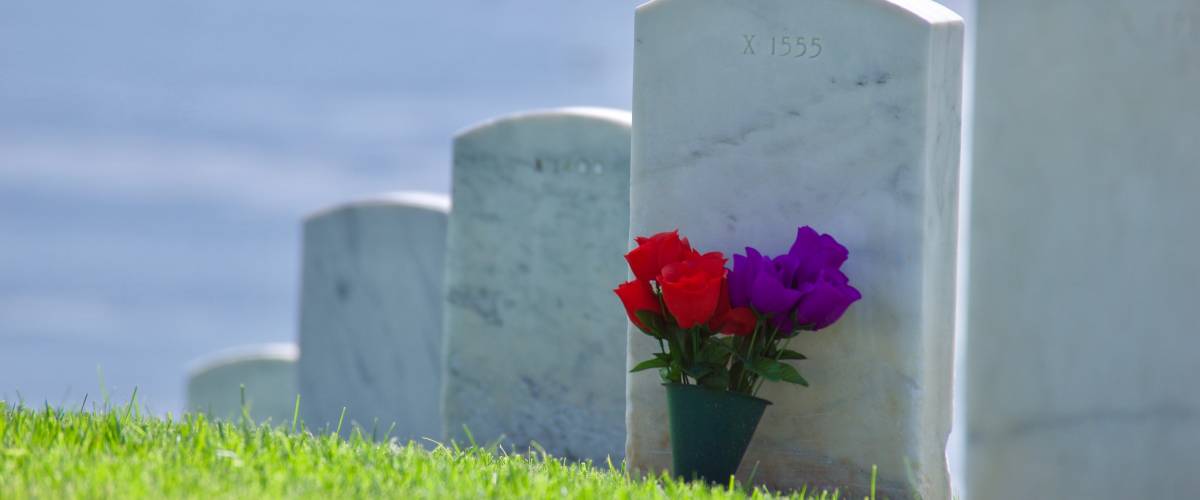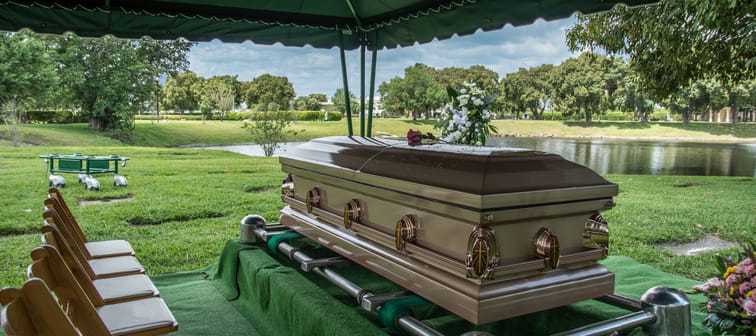Is preplanning and prepaying a good idea?

Generally speaking, a basic funeral fee includes planning, transportation of the body, embalming and other care, the casket, use of the funeral home and all the paperwork like the death certificate. An average funeral costs around $9,150, but it can be as little as $1,000 or as much as $20,000, according to Canadian provider Dignity Memorial.
Planning for and prepaying your funeral — as strange as it may seem — can allow you to lock in a price for something there’s no doubt you’ll need eventually. Those caskets, urns and related expenses could be a lot pricier down the road.
Just four years ago, the CEO of Basic Funerals pegged the average cost of a funeral in Canada at around $8,500.
It’s not easy to come up with that kind of money suddenly — especially these days, when so many people are out of work due to the pandemic, or are just getting back on their feet and trying to save or pay down debt.
Empower your investments with Qtrade
Discover Qtrade's award-winning platform and take control of your financial future. With user-friendly tools, expert insights, and low fees, investing has never been easier.
Start Trading TodayThe downsides of preplanning

It doesn’t always make sense to pay ahead, according to the U.S. nonprofit Funeral Consumers Alliance.
Your survivors may not understand a contract you've made with a funeral provider — or even be aware of them.
If you do decide to prepay, the Alliance recommends making sure your plan allows for a full refund or one with little or no penalty if you need to cancel. Make sure you're also covered by an insurance policy in case the funeral home you've made your arrangements with ever goes out of business or files for bankruptcy.
And if you’ve purchased funeral insurance, the money should be transferable to another funeral establishment should you move, change your mind or the company closes. If you do transfer your funds, however, the new funeral home is not obligated to honor the prices you were originally quoted.
Nontraditional funerals have also been gaining momentum. “Green” funerals or natural burial options incorporate things like biodegradable caskets and fewer chemicals used in preparing a body for burial. It's possible your end-of-life preferences might change in the years before your death.
Some diving into difficult topics, others ducking

While COVID has spurred more Canadians to have difficult conversations about end-of-life or estate planning, many people are still determined to avoid them, according to a recent survey from funeral provider Arbor Memorial.
Nearly a quarter of those surveyed said they would rather clean their bathroom than complete their will, and 36% would rather organize their desk. Creating a legal will often takes less than an hour and is an important first step in ensuring your estate lands in the right hands when you're gone.
But Arbor Memorial says including your wishes in your will isn't enough because those documents are typically only read after your funeral. Preplanning not only saves your family members money and stress while they're grieving but also offers an opportunity to ensure your final wishes are carried out exactly.
Unexpected vet bills don’t have to break the bank
Life with pets is unpredictable, but there are ways to prepare for the unexpected.
Fetch Insurance offers coverage for treatment of accidents, illnesses, prescriptions drugs, emergency care and more.
Plus, their optional wellness plan covers things like routine vet trips, grooming and training costs, if you want to give your pet the all-star treatment while you protect your bank account.
Get A QuoteWhat else can you do to prepare yourself and your loved ones?
Preplanning your funeral is sort of like buying life insurance. Nobody wants to do it, but it pays off handsomely for your loved ones. And it’s easy these days to get a free life insurance quote in minutes.
If you already have life insurance, the next important end-of-life step is sketching out a plan for your retirement.
You’ll want to enjoy that retirement as long as you can. So once you've set up an RRSP and feel confident in your savings and investments, consider speaking to a financial advisor to make sure you really have the funds you need to have all the fun you're planning.
Trade Smarter, Today
Build your own investment portfolio with the CIBC Investor's Edge online and mobile trading platform and enjoy low commissions. Get 100 free trades and $200 or more cash back until March 31, 2025.








